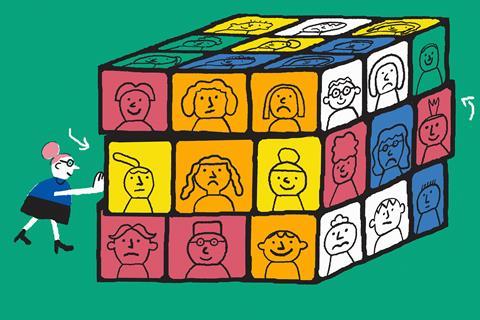What classroom teachers can do to support new secondary students
Every secondary school has a plan to support new students transitioning from primary. School visits, meetings with teachers, buddies. But this year most schools have had to adapt, revise or even abandon parts of their transition plans because of Covid-related disruption. After a disrupted final year of primary school, some students will be facing a very new challenge with a great deal of uncertainty.
Whatever the situation at your school, there are ways you can help new pupils.

Why is transition important?
The transition from primary to secondary is a massive leap for students. Everything is different: how they get to school each day; how they eat their lunch; needing to go to multiple classrooms throughout the day; navigating a varying timetable and homework. That’s a massive cognitive load to manage, and it will be a constant challenge for most pupils for several weeks. Many will find it overwhelming.
Overwhelmed or not, the challenges of transition will affect the learning of all pupils. A report for the Scottish government reviewed evidence of the effects of transition on learning, finding ‘fairly robust evidence that there was a decline in pupils’ educational outcomes after they moved to secondary school.’
Overwhelmed or not, the challenges of transition will affect the learning of all pupils. A report for the Scottish government reviewed evidence of the effects of transition on learning, finding ‘fairly robust evidence that there was a decline in pupils’ educational outcomes after they moved to secondary school’ (bit.ly/388XWPL).
So, it’s important to do what we can to help smooth the path for pupils.
What you can do in the classroom
As well as your school’s plans and activities to support new students, there are things you can do in your own classes to help.
Give some control
With so many changes to navigate, students might feel powerless and without any agency in their situation. At times like this, having a say in even very small things can reduce stress and help pupils feel like they have a part to play in their learning.
Consider where in your lessons you might let learners make decisions for themselves. For example, you might allow students to choose where they want to sit, if appropriate.
Another way of offering students’ agency might also help with another issue you might be facing. Some schools that normally stream incoming students by ability are choosing not to do so this year. This means you might be teaching mixed-ability groups where this isn’t something you’re used to. One way to approach lessons like this is to prepare several tasks of varying difficulty and allowing students to choose which to start with, with the expectation that they move on to the next task after completing each.
This lets each individual help you find the right level of challenge for them while also allowing them some degree of agency in their learning.
Make space for questions
While students might be with you for a science lesson, science might not be what they’re worried most about right now. You could make space – just a minute or two – at the start of lessons early in the term to field any questions pupils have about the school. You might consider using an online tool where they can put forward questions anonymously. Or even merge this into regular diagnostic quizzes. Of course, you won’t have all the answers, but you can always point students in the right direction, or find out the answer for them for next time.
Be clear on the rules
There’s a lot to take in when you start secondary school. Students won’t have cognitive capacity to digest everything at once. Even more so if they’re anxious about being punished for transgressions. If you, or your department, have any housekeeping rules – particularly if they differ from the rest of the school – have them clearly displayed both in the classroom and in corridors. Regular friendly, non-judgemental reminders will help students orient themselves and feel safe in their new situation and routines.
Paul MacLellan and Kirsty Patterson














No comments yet